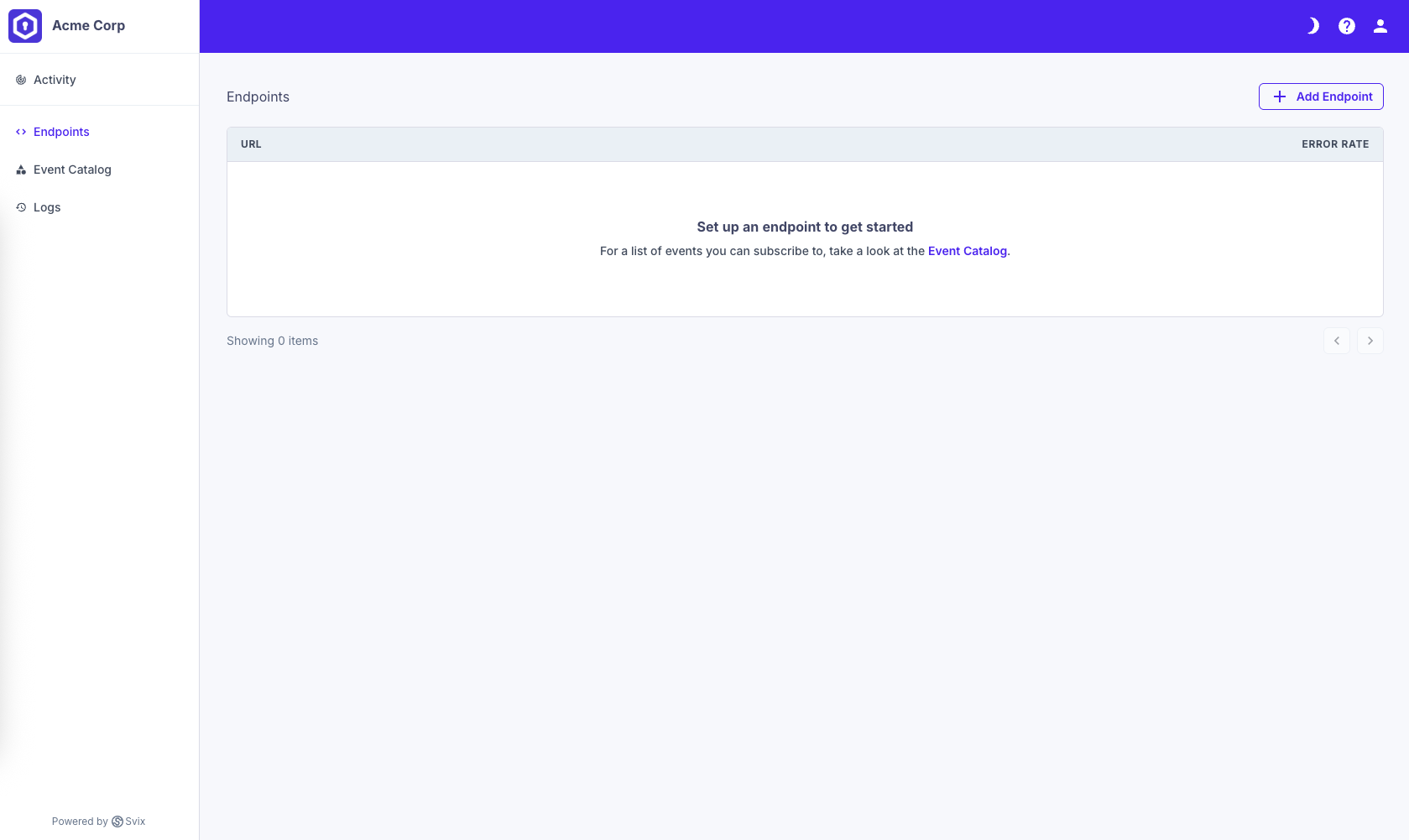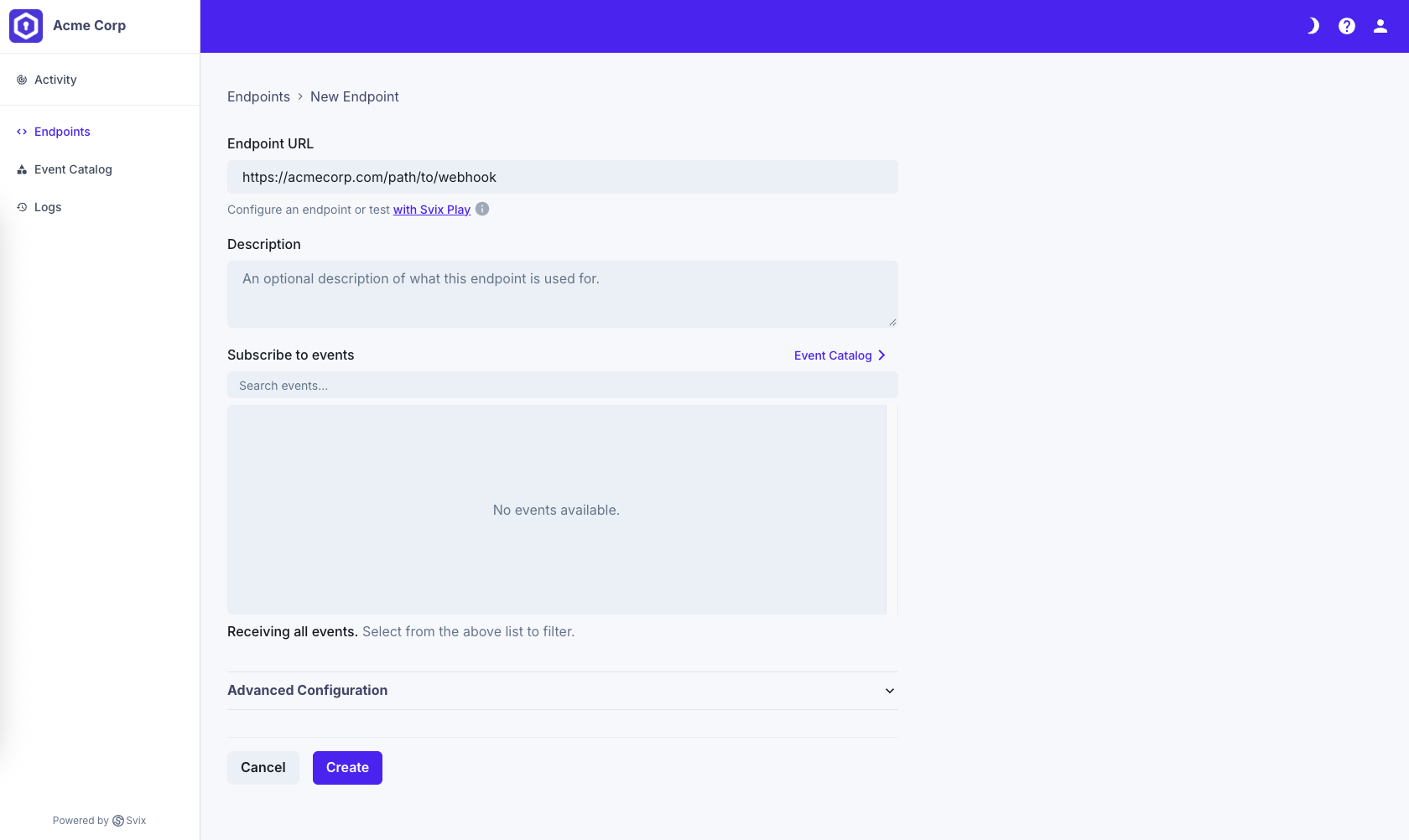Webhooks
Tesseral supports sending webhook notifications to your application, so that you can keep your Organizations and Users in sync between Tesseral and your application’s database.
Using webhooks with Tesseral
To receive webhooks from Tesseral, go to the Webhooks settings section of your Project settings page in the Tesseral Console.

Click the “Edit” button to manage your webhook endpoints.

Managing webhook endpoints
You can add, edit, and delete webhook endpoints in the webhook portal. Each endpoint has a URL that Tesseral will send events to.
To create a new endpoint, click the “Add endpoint” button. You will be prompted to enter an endpoint URL and an optional description. The URL must be a valid URL that Tesseral can send events to.

Once you have created an endpoint, Tesseral will send events to that endpoint whenever a relevant event occurs in your Project.
Processing webhook events
Tesseral will send your webhook endpoint an HTTP POST request. See “Webhook event format” for documentation on the format of that HTTP POST’s request body.
Your endpoint must respond to events with a 200 HTTP response code after successfully processing a webhook event. Other status codes will be treated as an error, and Tesseral may retry sending you the event.
Webhook event format
Tesseral’s webhooks allow your backend to receive realtime notifications about changes to Organizations and Users.
sync.organization
Whenever an Organization is created, updated, or deleted, Tesseral will send
your webhook endpoint a sync.organization event of the form:
Use the
GetOrganization
endpoint from the Backend
API to get details about the
modified Organization. If the Organization was deleted, then you will receive a
404 from GetOrganization.
sync.user
Whenever a User is created, updated, or deleted, Tesseral will send
your webhook endpoint a sync.user event of the form:
Use the GetUser
endpoint from the Backend
API to get details about the
modified User. If the User was deleted, then you will receive a 404 from
GetUser.